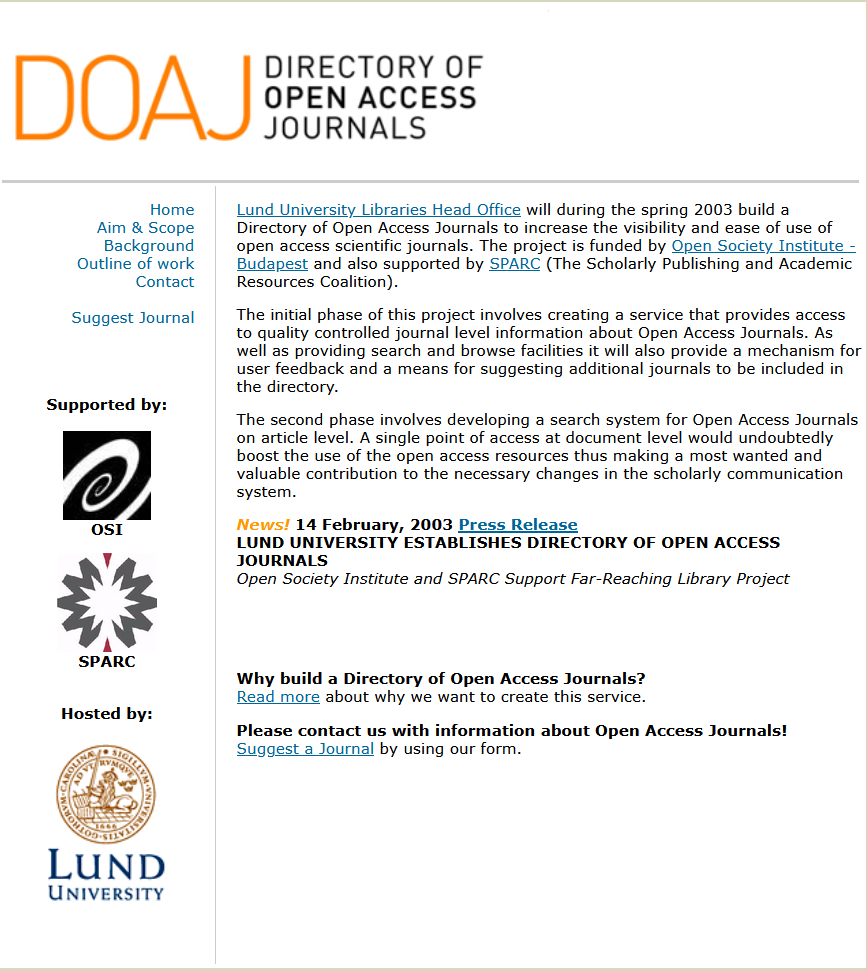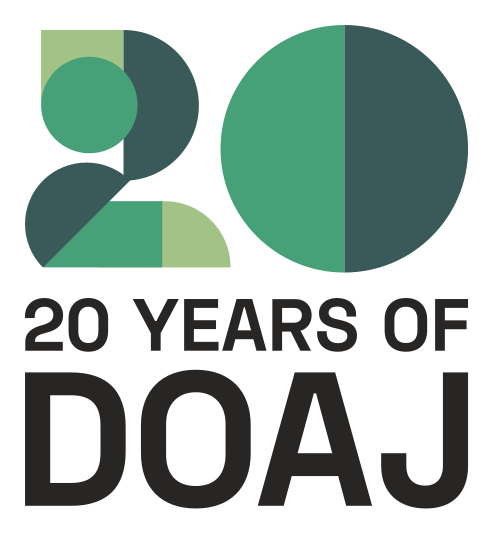It’s our birthday! Today marks 20 years since the Directory of Open Access Journals started our two-decade journey – building and maintaining trust in quality open access journals – a mission that is as relevant now as it was then.
DOAJ was launched in the wake of the Budapest Open Access Initiative of 2002, with a simple purpose to bring together a list of the growing number of journals not based on a subscription model and which could be accessed and reused immediately on publication. Looking back at that first list of 320 titles spanning 36 countries feels nostalgic – the number of “Electronic journal of…” titles acts as a reminder that although this was still early days for OA journals, we were also in the midst of a huge shift to digital. These journals would all now be defined as Diamond, predating the era of the article processing charge (APC). A number of them have since ceased publication, but many are still active.

When Lars Bjørnshauge first took the initiative to develop DOAJ as a service at Lund University Library, the focus was on making sure that these journals could be discovered, and the service quickly moved to aggregate article-level data to improve the visibility of journal content. As the Open Access movement grew and developed new complexities, so did DOAJ. The index grew steadily and moved to a new home in 2013: IS4OA, a non-profit community interest company. By this time the Open Access landscape had evolved with the development of open access policies and funder mandates, the growth of hybrid journals and the introduction of the APC. It became clear that DOAJ needed to adapt in order to meet the community’s need to find specific information about journal policies and practices, and to address a new problem: publishers with questionable practices exploiting the APC system. In 2013-2014, we developed a new set of new criteria for inclusion in the index in close collaboration with the community and asked nearly all journals to reapply.
Over the years, our application form has developed from just a few questions to forty-one today, and our team has grown from a couple of part-time employees at Lund University Library to a global network of core team members, ambassadors and volunteers.

Today, as the total number of journals in the index nears 20,000, we continue to refine our processes to keep up with the increasing demand for our service. We process around 10,000 applications a year, only accepting a quarter of these for inclusion in the index. We see ourselves as much more than a gatekeeper and are committed to the improvement of standards in open access publishing, providing help and advice to rejected journals, for example in explaining copyright and licensing, so that editors can make the required changes and reapply.
DOAJ is now seen as a standard-bearer for open access publishing, a co-developer of Principles of Transparency and best practice in scholarly publishing, and a founding partner of Think.Check.Submit. We have a growing and diverse team with expertise in publishing, standards and indexing, with a dedicated Quality Team that focuses on evaluating and investigating questionable practices. Just as importantly, we are the only index which actively seeks to include and champion ALL quality open access journals, regardless of language, discipline, and geography.
Our community – researchers, publishers, librarians and research funders – rely on us as a marker of quality. Our metadata is integrated into discovery services and is fundamental to many other services, including those that are being developed to facilitate and monitor the transition to open access. Our dataset is used again and again as a source for researchers and consultants.
The DOAJ team is keenly aware that we are currently in the midst of a crisis of trust within scholarly communications. Not a week goes by without the exposure of another paper mill, concerns about the publishing industry’s ability to keep up with the dizzying development of AI, or concerns about bad actors in our community.
We take our role as a trusted core open infrastructure very seriously, and just last year committed to the POSI principles as a public assurance that we will remain a community–led service, committed to standards of transparency, and that we will continue to manage the service with the community’s best interests at heart.
We hope you will join us in celebrating our anniversary over the coming months by participating in our events to focus on our three core values: open, trusted, and global.
We, the DOAJ team, would like to thank you, our community for twenty years of putting your trust in us and supporting our valuable work.

